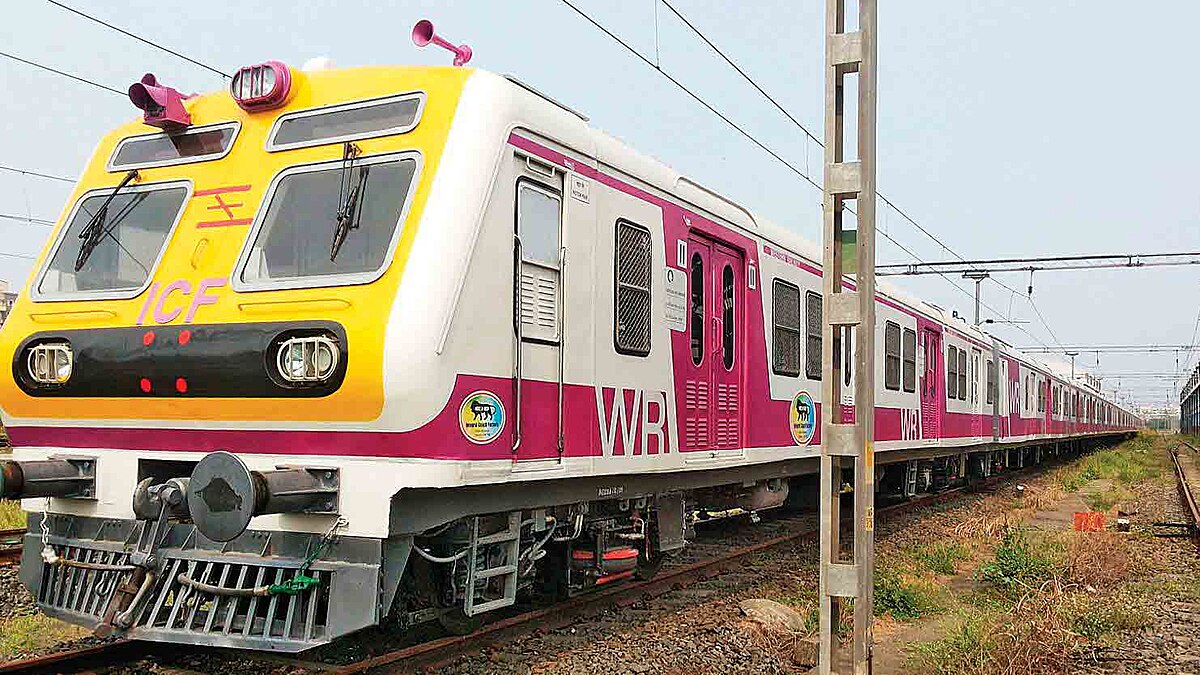Mumbai’s suburban railway system, one of the most critical public transport networks in India, is set for a planned service disruption in the early hours of 20 May 2025.
Western Railway has announced a scheduled jumbo block between Vasai Road and Bhayandar stations for routine but vital maintenance work. The temporary suspension of services is likely to impact thousands of night-time commuters, goods carriers, and operational schedules across the region. According to senior officials from the Western Railway, the maintenance block will be implemented on both the Up and Down slow lines from 00:30 hrs to 04:00 hrs on the intervening night of Tuesday and Wednesday. This 3.5-hour window is designated for essential upkeep of railway tracks, overhead equipment, and signal systems—integral components that ensure the safety and efficiency of Mumbai’s suburban rail operations.
To maintain continuity in passenger movement despite the block, Western Railway has confirmed that local trains operating on the affected slow corridors will be diverted to the fast lines between Virar and Borivali or Bhayandar. However, several scheduled services will be cancelled due to the realignment, and commuters have been advised to check updated schedules at their respective station master offices in advance. Officials have further clarified that this night block will not be followed by any service disruptions during daytime hours on 18 May 2025, ensuring minimal impact to weekend travel. The proactive communication from Western Railway has been seen as a step towards greater transparency in suburban rail operations—especially in a city where millions depend on these trains daily.
In parallel with the night block notification, Western Railway has introduced passenger-centric enhancements on its long-distance services. In an initiative designed to expand access and convenience, additional halts are being trialled at Palghar station for select express services. These include the Bandra Terminus–Bhuj Kutch Express and the Dadar–Bikaner Express in both directions. These new stoppages, implemented on an experimental basis, reflect growing demand from smaller towns like Palghar, which are witnessing increased residential and commercial activity. The railway’s responsiveness to regional growth trajectories supports not just passenger convenience, but also sustainable urban expansion in second-tier commuter hubs surrounding Mumbai.
Railway officials stated that the Bandra Terminus–Bhuj Express will now halt at Palghar at 19:00 hrs from 17 May, while the return train from Bhuj will stop at 09:34 hrs from the same date. Similarly, the Dadar–Bikaner Express will halt at Palghar at 16:14 hrs beginning 18 May, with the Bikaner–Dadar return leg stopping at 11:12 hrs from 20 May onwards. Each halt is expected to last approximately two minutes. For passengers, this expansion offers improved connectivity without the need to commute to major boarding points in Mumbai, which can be time-consuming and resource-intensive. For Western Railway, it represents a strategic nod to decentralised transit planning—supporting goals of equitable mobility and reduced carbon emissions from road-based alternatives.
The planned maintenance block between Vasai and Bhayandar also speaks to a larger need for sustained investment in the integrity of Mumbai’s legacy rail infrastructure. The suburban network, while robust, is ageing under extreme daily load. Regular upgrades and scheduled downtime, though inconvenient in the short term, are essential to prevent larger breakdowns and safety incidents. In a city grappling with the dual demands of rapid urbanisation and the urgent need for low-emission transport options, Mumbai’s suburban trains are lifelines that also represent an environmental imperative. Ensuring their smooth, reliable, and safe operation aligns directly with India’s commitment to sustainable urban development and net-zero targets.
While temporary disruptions often frustrate commuters, railway planners argue that operational transparency, effective pre-notification, and improved scheduling tools can turn these planned outages into moments of public trust. The move to inform commuters ahead of time, align services to fast lines, and communicate changes through multiple channels reflects an increasingly responsive rail administration. As the urban sprawl continues to push Mumbai’s boundaries northward and westward, efficient and well-maintained rail corridors will remain at the heart of sustainable commuting. With demand expected to rise further in the coming years, ensuring high levels of maintenance without compromising passenger convenience will remain a critical challenge—and opportunity—for the Indian Railways.
For now, commuters are advised to plan their journeys with caution during the early hours of 20 May. Rail officials have urged passengers to check station notices, listen to public announcements, and use official online portals for updates regarding cancellations or rescheduling of affected services. The additional halts at Palghar, meanwhile, may evolve into permanent features if ridership data reflects consistent usage. Western Railway’s move reflects a growing sensitivity to regional mobility patterns and could pave the way for more granular, commuter-friendly scheduling in the future.
As Mumbai continues to evolve into a more equitable and environmentally sustainable metropolis, such incremental changes—though small in isolation—offer critical support to the city’s broader mobility and climate goals.
Also Read : Greater Noida’s New Logistics Hub to Boost Freight Movement


